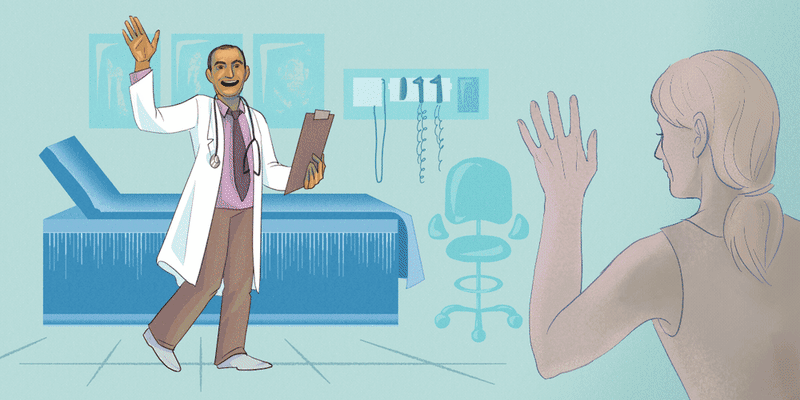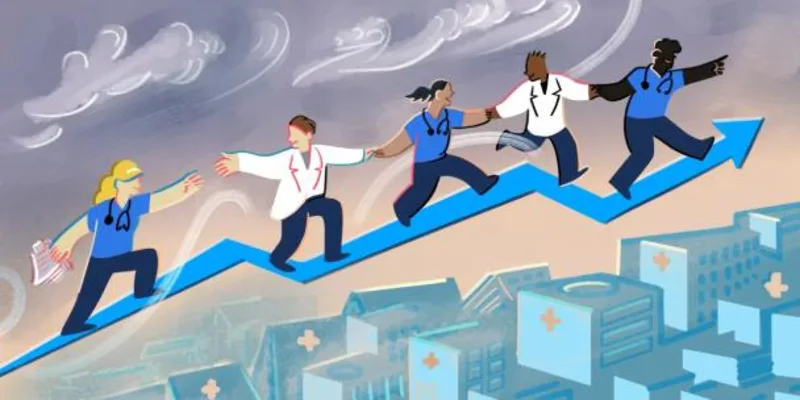
To my younger self,
I remember how excited you were when you finally settled on medicine as the thing that you wanted to do as a career in your junior year of college. I remember all the questions you had about what the process entailed since no one in your family had undertaken this journey before. I even remember some of the doubts you had when you thought about how long of a journey it would be and whether you were up to it. Well, I write to you from fifteen years into the future, on the brink of finishing my first year as a cardiologist. It is hard to believe that I can finally begin to see the light at the end of what has been a very long tunnel, but I have learned some things along the way that I thought would be helpful to you as you go along this journey.
Be prepared for the long haul.
When I started out, I thought I had some idea of how long the journey was going to be. I knew it would be a few years until I became a medical doctor, but I did not realize how much time it would take to effectively train to become an independent doctor. Besides medical school, there is residency and potentially fellowship, entailing years and years of learning. There is a chance, however, that life may take you on a different detour. You may take time off between college and medical school, or you may decide to do focused specialization in one particular field for a few more years. Also realize that even though you have an idea now of what you want to do, it may very well change as you go through different experiences, and that is OK. By the end, more than likely, your journey will be different than how you first envisioned it.
You don’t know everything, and that’s OK.
As you go through your training, you will come across incredibly intelligent people who will challenge you to go further in your knowledge as you become a physician. There is so much to learn about medicine, and at times, it may be overwhelming. The more you learn along the way, the more you’ll realize that you don’t know, and that is OK. As you continue, you will realize that you are participating in what will be lifelong learning. New technologies will come along, old assumptions will change, and what you learn will be challenged for the better. As an attending, I am becoming more aware of how vast medical knowledge is, and I see that even people who have been practicing for years will go to other colleagues to discuss clinical cases in order to come to a solution that is best for the patient.
Appreciate your nurses.
I cannot begin to tell you how much I appreciate the nurses that I have worked with over the years. As you go through training, you will see how valuable they are in terms of keeping you updated with what is going on with your patients. They are on the front lines, spending the most time with patients during their hospital stay; as a result of this, they may be aware of things about the patient that you may not know just by looking at labs and medications. Make sure to include them when it comes to figuring a care plan for the patients. Talk to them, and let them know how much you appreciate them. Trust me, you will grow to appreciate them when you find yourself in particular situations with some of your patients, and you’ll realize that sometimes, a crucial detail they provided had helped you to figure out the best course of action to take on a patient that wasn’t doing so well. I don’t think they get thanked enough for what they do, but they should be thanked for the care they provide and how crucial it is to how I can care for my patients. Along those lines…
You’re part of a team.
As you get more exposure to patient care, you will realize that there are many people involved in the patient’s care besides you. More than likely, you’ll be interacting with other physicians, nurses, technicians, case managers, social workers, physical therapists, speech therapists, occupational therapists, secretaries, etc. Each person on the team plays an important role; try to learn their roles and also realize how your role fits into the care of the patient. At the end of the day, it all comes down to trust. They will be depending on you; learn also to depend on them, since you need them too. Regardless of how long I practice, being a part of a team will always be crucial in promoting the best care for my patients.
It will be a challenging road.
Taking care of patients is not easy at times, and it can be overwhelming, especially if you have a patient that is seriously ill and whose life may depend on some of the decisions that you make. Sometimes, and unfortunately, patients may still pass away despite everything that you do. It can be emotionally challenging at times when you consider the seriousness of what you will be doing, particularly if you deal with critically ill patients whose families are looking to you for hope. Also realize that at times, your time will not be your own. You may be woken up by a page letting you know that a patient is not doing so well, or you may have to work long, demanding hours. All this can be physically draining at times, and it will be important to try to take care of yourself so that you can continue to take care of others. In the midst of all this…
Remember to remain human.
At the end of the day, you’re not a superhero, even though some patients, families, or staff may try to make you feel that way. You are a human being, full of emotions, desires, hopes, dreams, and fears. At times, this may come into play in your medical journey, and that’s OK. Remember to maintain that humanity as you interact with patients, family members, and colleagues. Never think of yourself greater than you are, but don’t doubt yourself more than you need to. At the end of the day, you are dealing with human beings always, not cases in a textbook. Come to your patients with humanity, and you will have more of a therapeutic impact than you realize. Come to family members and friends of patients with humanity, and you will help give them the hope they need in vulnerable times. Come to your colleagues with humanity, and they will strive to work with you to provide the best medical care you can as a team.
The list can go on, but I feel that for now, these are the most important things to consider in your journey. It is a worthwhile one that you are encountering, one that will change you in ways that you never would have imagined. Keep these things in mind, and you will enjoy a fruitful journey, one where you not only will become a physician, but you will become a better person than when you first started this journey. It may appear long, but this journey will come to an end sooner than you think. Good luck, and I wish you a successful journey.
Sincerely yours,
You, from the future
Dr. Madubata is a cardiologist who is interested in medical writing. His articles have been published on medical sites like KevinMD and MedPage Today. He is also a 2017 — 2018 Doximity Fellow.







